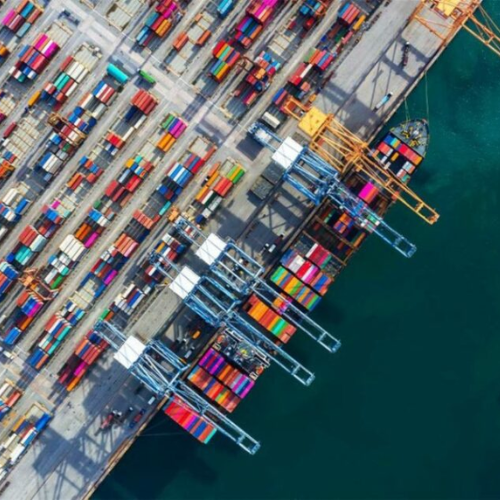South Korea has discovered a major problem—foreign products, mainly from China, are being falsely labeled as “Made in Korea” so they can be shipped to the United States without paying high taxes, known as tariffs. The Korean customs agency found over 29.5 billion won (that’s about $20.8 million) worth of goods involved in this kind of trickery just in the first three months of the year.
These fake labeling tricks are mostly connected to the U.S., making up 97% of all the cases. That’s a huge jump compared to the whole of last year, where U.S.-bound shipments only made up 62% of such violations. Authorities believe the increase is related to strong new trade rules and taxes put in place by President Donald Trump, who returned to office this year.
Trump has reintroduced heavy tariffs—especially targeting products from China. Some of these U.S. tariffs began in February, and the fear of these taxes has caused companies to look for ways to sneak around them. One way? Pretending products are from South Korea, which has a special trade agreement with the U.S., making it easier and cheaper to export goods there.
South Korea is Emerging as Weapon Superpower with KF21 Aviation Engine Technology
How the Tricks Work
Here’s how these shady tricks are happening:
In one case, cathode materials—used in batteries—were shipped from China into South Korea. Then, these materials were sent to the United States with false labels saying they were made in South Korea. The goal was to dodge the high tariffs that were already placed on Chinese goods even before Trump’s new ones began. This case involved 3.3 billion won worth of products.
Another case involved surveillance cameras. Companies imported the camera parts from China, reassembled them in South Korea, and then labeled them as Korean-made. This was done to bypass U.S. rules that limit technology from China, especially for security reasons. This trick involved a whopping 19.3 billion won worth of camera equipment. Some of these cameras have already been shipped out, but others are still sitting at ports in South Korea, waiting to be investigated.
Because South Korea is seen as a friendly trade partner by the U.S., and because it has a free-trade agreement, some companies are trying to use it as a backdoor to sneak their products into America. This means they avoid the high costs and restrictions placed directly on countries like China.
Tense Crossroads: Vietnam Vows Crackdown After U.S. Finds China Label Trickery
New Steps to Fight the Problem
South Korean officials are now taking strong action. They’ve set up a special task force to stop this kind of illegal activity and protect real Korean companies that follow the rules. They’re also working closely with U.S. officials to investigate the problem together and make sure no more fake-labeled products get through.
Earlier this year, President Trump placed a 25% tariff on some Korean products too, although that has now been temporarily paused for three months. Meanwhile, Chinese goods are now facing a massive 245% tariff due to ongoing disputes between the two countries. This has made companies even more desperate to find ways to avoid these huge costs.
Officials in South Korea said they carried out a special investigation in March, expecting that more companies would try to cheat the system during Trump’s presidency. Their prediction turned out to be true. The Korea Customs Service said it found clear signs of disguised exports in just the first quarter of the year.
All the violations that have been discovered are now being sent to prosecutors for legal action. This means that the companies and people involved could face serious punishment for trying to cheat the system.
South Korea says it will continue to crack down on illegal exports and will introduce more specific actions to stop this kind of trade fraud from happening again.
US Strikes Hard with Sanctions on Mexico’s Dangerous Juarez Cartel Leaders
Right now, their focus is on stopping the products already in the system and working with international partners to catch others trying to sneak through.
This discovery shows just how far some companies are willing to go to save money—and how serious countries like South Korea are about playing fair in global trade.


